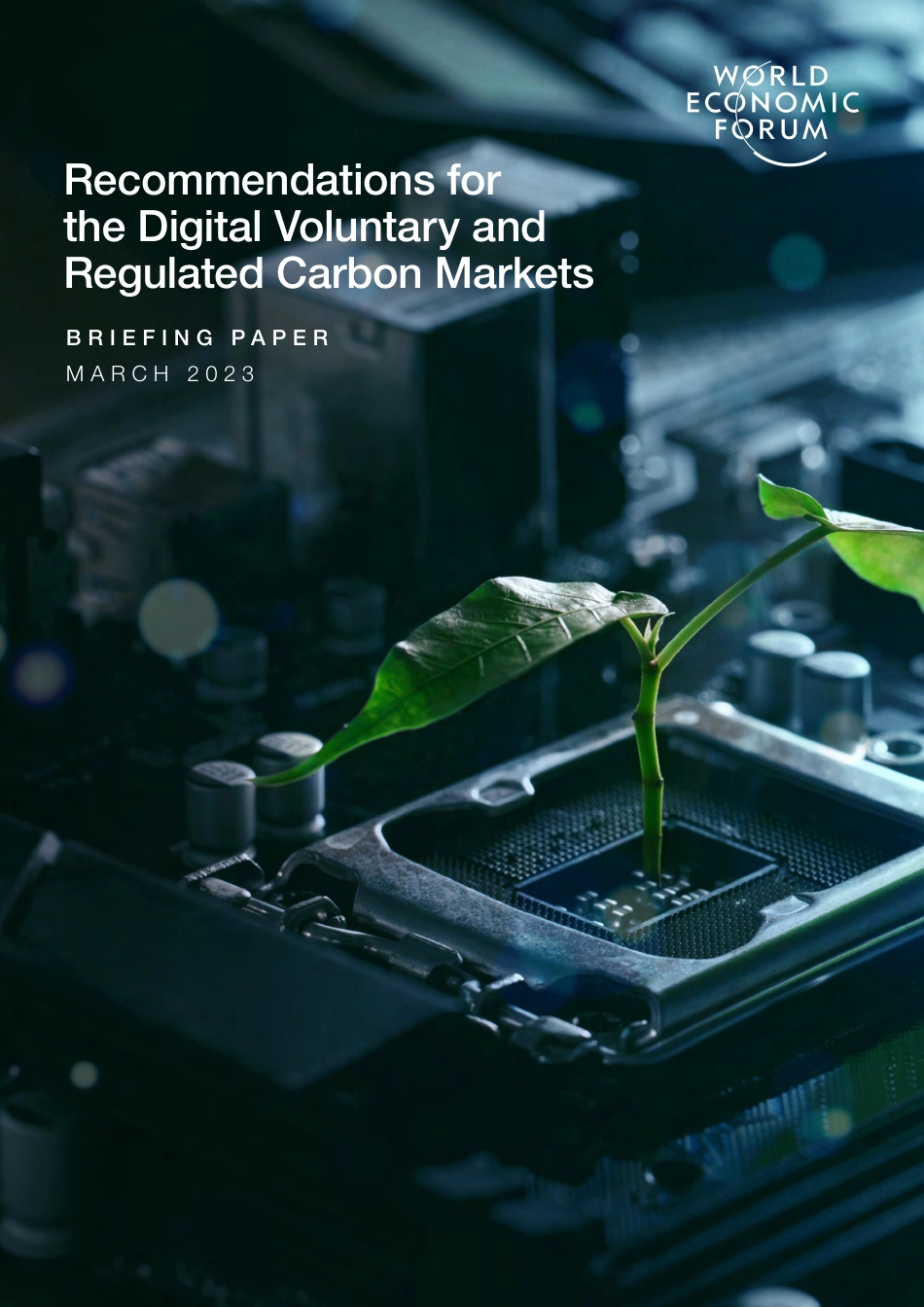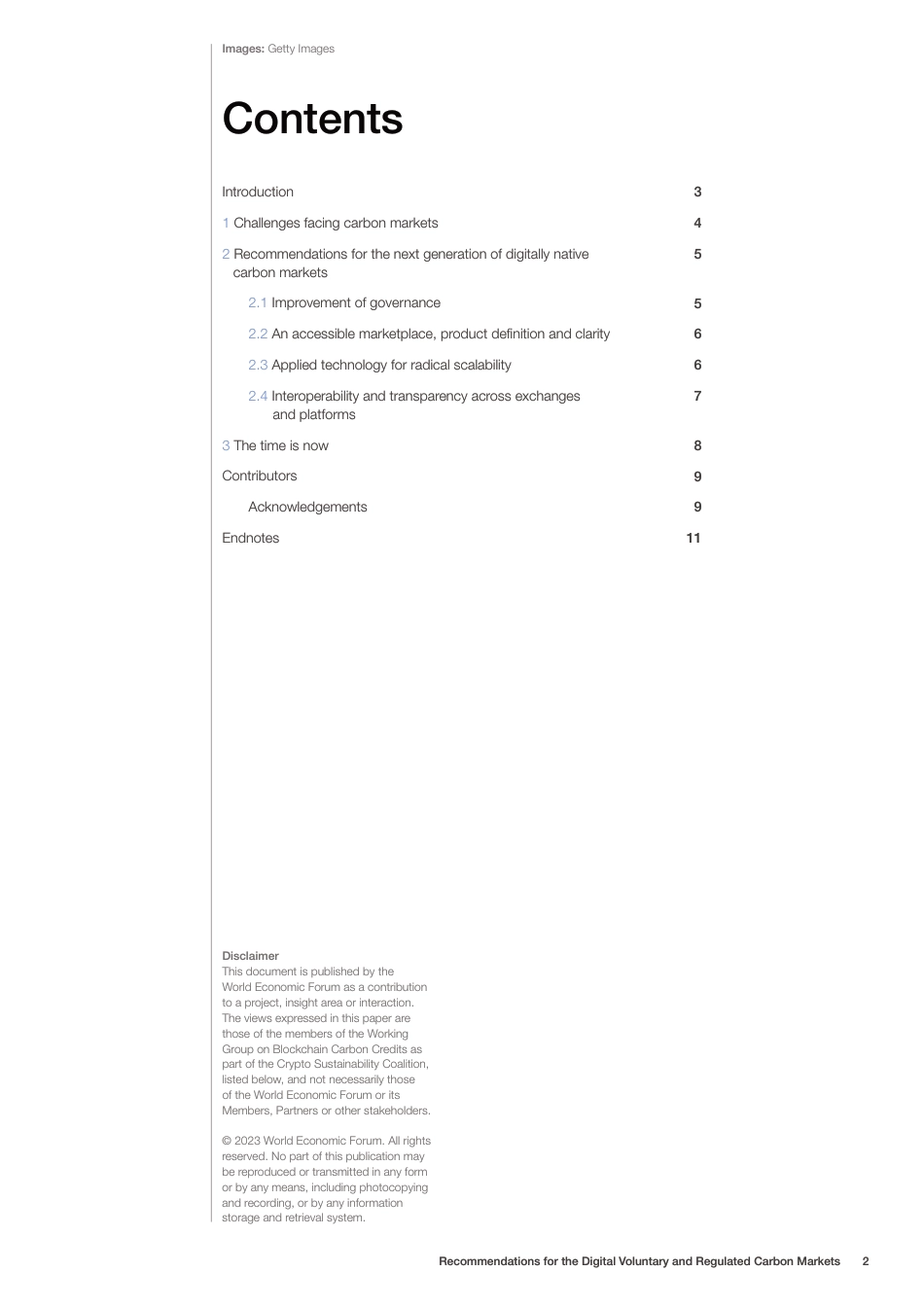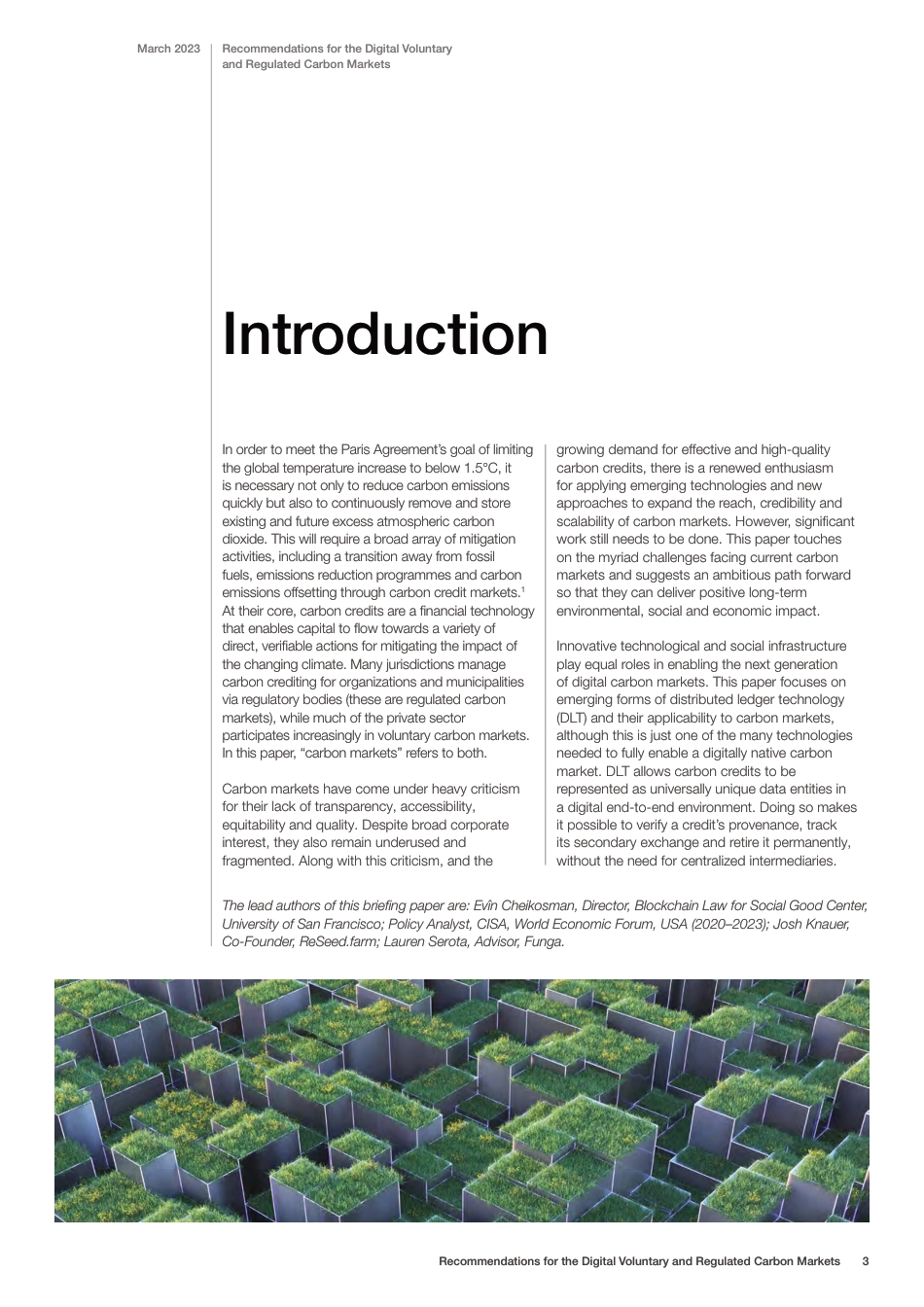Recommendations for the Digital Voluntary and Regulated Carbon MarketsB R I E F I N G P A P E RM A R C H 2 0 2 3ContentsImages: Getty Images© 2023 World Economic Forum. All rights reserved. No part of this publication may be reproduced or transmitted in any form or by any means, including photocopying and recording, or by any information storage and retrieval system.Disclaimer This document is published by the World Economic Forum as a contribution to a project, insight area or interaction. The views expressed in this paper are those of the members of the Working Group on Blockchain Carbon Credits as part of the Crypto Sustainability Coalition, listed below, and not necessarily those of the World Economic Forum or its Members, Partners or other stakeholders.Introduction1 Challenges facing carbon markets2 Recommendations for the next generation of digitally native carbon markets 2.1 Improvement of governance2.2 An accessible marketplace, product definition and clarity2.3 Applied technology for radical scalability2.4 Interoperability and transparency across exchanges and platforms3 The time is now ContributorsAcknowledgementsEndnotes345566789911Recommendations for the Digital Voluntary and Regulated Carbon Markets2IntroductionIn order to meet the Paris Agreement’s goal of limiting the global temperature increase to below 1.5°C, it is necessary not only to reduce carbon emissions quickly but also to continuously remove and store existing and future excess atmospheric carbon dioxide. This will require a broad array of mitigation activities, including a transition away from fossil fuels, emissions reduction programmes and carbon emissions offsetting through carbon credit markets.1 At their core, carbon credits are a...



